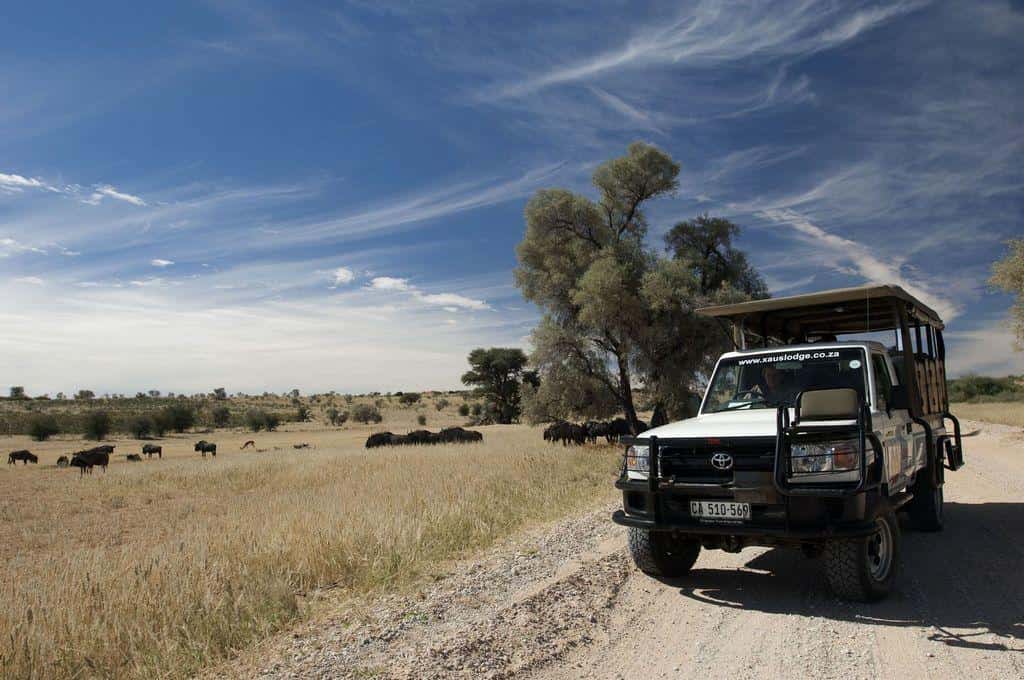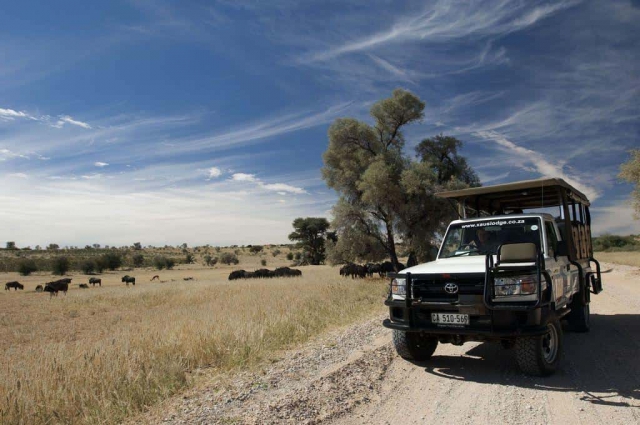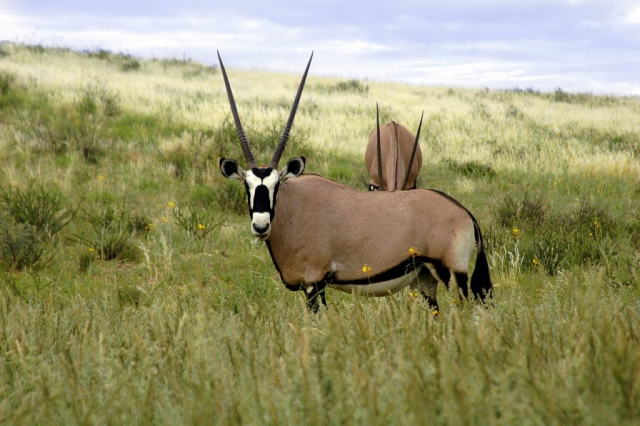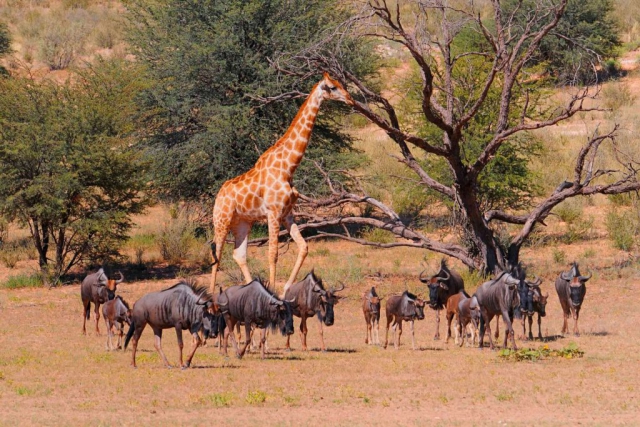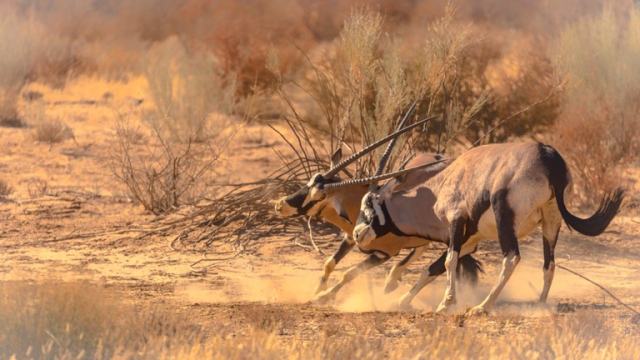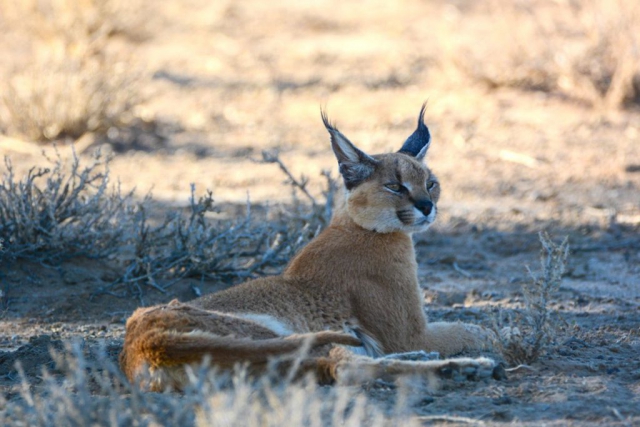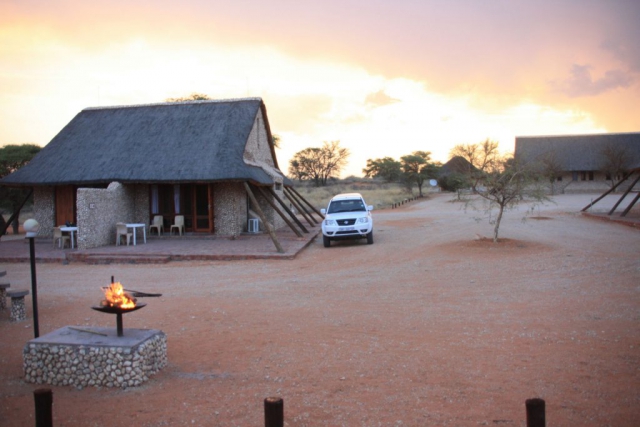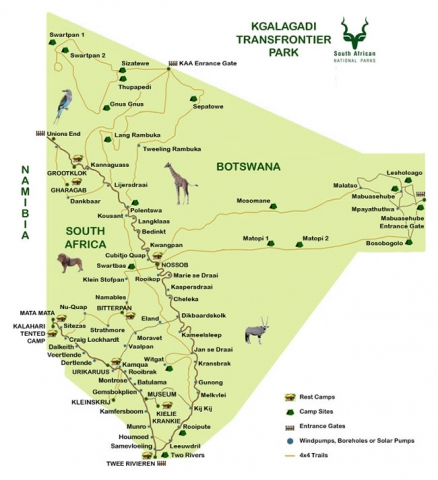Content
The Kgalagadi National Park was established in 1931, initially known as the Kalahari Gemsbok Game Reserve. In 2000, it merged with the Gemsbok National Park in South Africa to form a transfrontier park, becoming one of the largest protected areas in the world. The term "Kgalagadi" in the local Tswana language means "place of thirst," reflecting the arid and desert environment of this region.
Location and Access to Kgalagadi National Park
Located in the southwest corner of Botswana, the park is accessible through several entrances. Visitors can arrive in their own vehicles, hire a transfer service, or fly to the nearest airport and rent a car from there.
Flora and Fauna
Overview of Biodiversity in Kgalagadi
Despite its arid conditions, Kgalagadi hosts a wide variety of wildlife. Visitors can expect to see lions, cheetahs, hyenas, various types of antelopes, and a multitude of birds, among other species.
Region’s Endemic Species
The park is home to several endemic species, such as the gemsbok antelope and the Kalahari lion. These species have adapted to the harsh conditions of the Kalahari Desert, and their survival here is a testament to the resilience of life in the desert.
The Great Ecosystem of Kgalagadi and Its Importance
The Kgalagadi ecosystem plays a crucial role in maintaining the region’s biodiversity. Its unique semi-arid ecosystem provides habitat for a wide range of species adapted to the harsh desert conditions.
Main Attractions
Points of Interest within the Park
Kgalagadi National Park offers diverse attractions, from panoramic viewpoints to nature picnic areas. Moreover, various adventure trails lead visitors through the magnificent red sand dunes and vast plains of the park.
Activities and Excursions
Visitors can engage in a variety of activities, such as 4×4 vehicle safaris, hiking trails, and birdwatching. Night safaris are particularly popular as they provide the opportunity to observe the park’s nocturnal creatures in their natural environment.
Additionally, some local companies offer cultural excursions to nearby communities, providing a unique insight into Botswana’s rich history and culture.
Accommodation and Services
Accommodation Options within and near the Park
Kgalagadi National Park offers a variety of accommodation options to suit different needs and budgets. These include luxury camps, lodges, guesthouses, and camping areas for those seeking a more authentic nature experience.
Visitor Services Available
In addition to accommodation, the park provides a range of services to ensure a comfortable and enjoyable stay for visitors. These include barbecue facilities, supply stores, visitor centers, and observation points with binoculars.
Rules and Regulations for Staying in the Park
To ensure the park’s protection and the safety of its visitors, there are certain rules and regulations that must be followed. These include restrictions on collecting flora and fauna, speed limits, and regulations regarding interaction with wildlife.
Conservation and Sustainability
Conservation Efforts and Their Impact
Kgalagadi National Park is committed to conserving its unique ecosystem. Several conservation projects are carried out, ranging from protecting endangered species to recovering and maintaining natural habitats.
Threats to the Park’s Biodiversity
The park faces various threats to its biodiversity, such as climate change, poaching, and human encroachment. Measures are being taken to address these challenges and ensure the long-term survival of the species that call this park home.
Sustainable Tourism Initiatives in Kgalagadi
Kgalagadi strives to promote sustainable tourism. Visitors are encouraged to minimize their impact on the environment and contribute to the local economy by purchasing local products and services.
Practical Information for Visitors
Best Time to Visit
The best time to visit Kgalagadi National Park depends on what you want to see. The rainy season, from November to April, offers beautiful landscapes and is the best time for birdwatching. The dry season, from May to October, is ideal for wildlife viewing, as animals gather around the scarce water points.
Tips for a Safe and Enjoyable Visit
It is essential to carry sunscreen, plenty of water, and suitable clothing due to the arid conditions of the park. It is also advised to always be aware of the wildlife around you and maintain a safe distance. Remember, this is their natural habitat.
How to Get There and Get Around the Park
Visitors can reach the park by plane through the nearest airport or by car from major cities. Within the park, it can be explored by self-driving, though 4×4 vehicles are recommended due to the terrain conditions.
Local Culture and History
Local Communities and their Relationship with the Park
Local communities have lived in harmony with nature in the Kgalagadi region for centuries. Their knowledge and traditional practices have played a crucial role in the park’s biodiversity conservation. Today, many of these communities are involved in tourism and park conservation.
Cultural History of the Park and the Kgalagadi Region
The cultural history of the Kgalagadi region is rich and diverse, with influences from various indigenous cultures. This history is reflected in the variety of historical artifacts and cultural sites that can be found in the park and its surroundings.
Local Events and Festivals
Visitors can also have the opportunity to witness or participate in local festivals and cultural events, which offer a unique insight into the local culture and traditions.
Research and Education
Ongoing Research Programs in Kgalagadi
Several research programs are conducted in Kgalagadi to study its biodiversity, ecosystem, and the threats it faces. The findings of these researches help inform conservation and management strategies of the park.
Education and Environmental Awareness Opportunities
The park offers a variety of educational programs and environmental awareness opportunities for visitors of all ages. These programs aim to foster appreciation for nature and understanding of the importance of conservation.
Contribution of the Park to Science and Conservation
Kgalagadi National Park is a valuable source of scientific knowledge and a significant contributor to global conservation efforts. Its unique ecosystem and rich biodiversity make it an ideal place for research and conservation.
